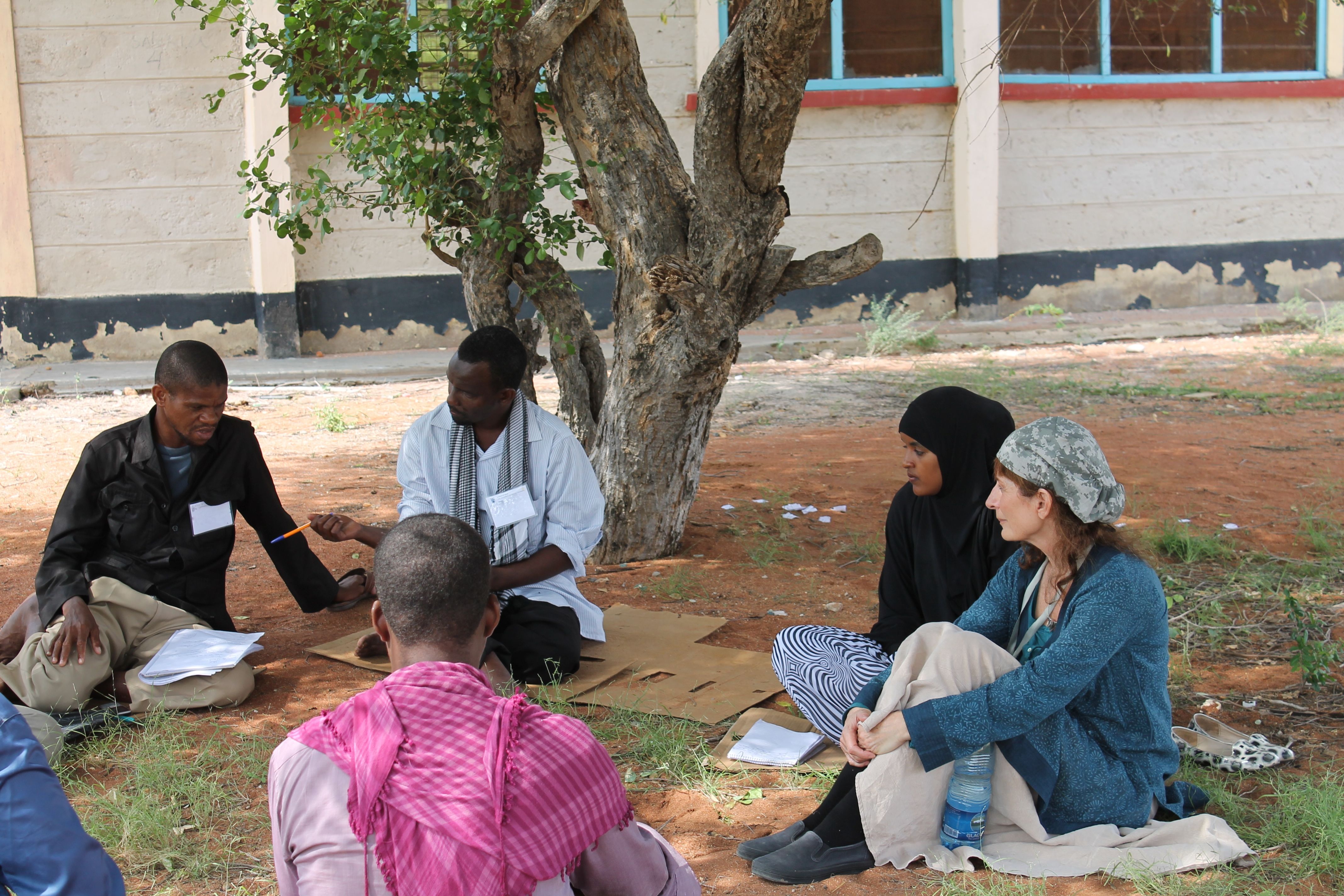
For the past 21 years Dadaab refugee camps have had primary and secondary schools as the only institutions offering education in the camps. Secondary schools were therefore viewed as the graduate schools in the camps.
Now, after many years of development, UBC’s Faculty of Education and Moi University in Kenya are collaborating to offer university education in Dadaab through the Borderless Higher Education for Refugees [BHER] project.
Higher education was thought to be impossible in the remote and isolated area of Dadaab but the professors made the impossible happen and launched Dadaab campus. This is the first time ever a university campus has been established in the north eastern province of Kenya.
The Dadaab community has appreciated this move, bringing great relief from the many challenges of living in the camps. Before higher education was offered in Dadaab students wishing to continue their studies beyond high school needed to travel to Kenya’s interior. School fees and living outside the camp are too expensive for most. Those who work for non-governmental organizations operating in Dadaab receive incentive pay that is used to support their families as well as their brothers’ and sisters’ education. Higher education in Dadaab provides a situation where students can receive their higher education as they support their families.
Dadaab campus will make it possible for young refugee youth to fulfill their future aspirations. Many students dream to pursue their education to a higher level and become professionals in different fields of knowledge. Now with Dadaab campus students can turn their dreams into reality.
Dadaab students hope the university education will impact their living standards. Earning a bachelor’s degree or diploma students expect to find decent and high paying jobs in different parts of the world. This will would elevate their living standards to a much higher level.
Moreover, Dadaab campus is convenient for the students. Since Dadaab is located a few kilometres from the three camps (Dagahaley, Ifo and Hagadera), students don’t waste alot of time in movement travelling to the learning center as opposed to travelling to Nairobi and Garissa for the same service. There is also the challenge of the policemen who conduct security checks on the travel within and outside Dadaab. But the funny part of the story is that the police can conduct thorough checks on refugee students who bear travel documents. This sometimes brings about challenges which include, but are not limited to: being delayed from classes, having travel documents vandalized, or being, abused, arrested or sent back to the camps. With a higher-education Dadaab campus in place, all these challenges faced by refugee students will be addressed.